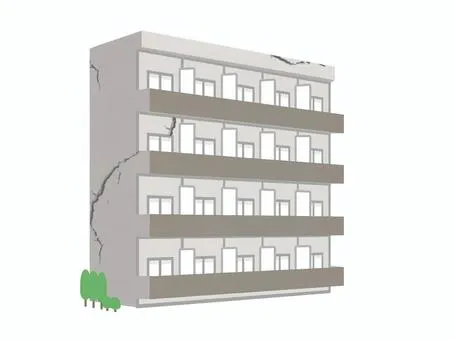Recently, I feel like a storm is raging through real estate, with condominium prices skyrocketing, buildings overlooking Tokyo Tower, and hotels costing hundreds of thousands of yen per night. At times like this, I wanted to go back to the basics of “what is real estate” and calm my mind.
“What is real estate?” When asked, don't answer “property that never moves.” Regarding real estate, “land and fixed objects thereof shall be real estate.” (Civil Code Section 86) and is defined by law.
(1) What is “land”
When asked what “land” is, there aren't many people who can easily answer it. That's because there's no definition. By analogy from registration laws and other treatments, land can be thought of as “that part where the surface of the earth is divided by boundary points and boundaries.” Incidentally, the surface of the earth is “the part of the earth that is not covered by water.” In other words, the boundary point and the surface of the earth where the boundary line is not clear is not land, so it is not real estate. Therefore, for land to be considered as real estate, the boundary points and boundaries must be clearly defined.”
(2) What is a fixture
A fixed object under civil law is “something that is fixed on land, and specifically, buildings, trees, unseparated fruits, difficult to move retaining wall. It is often explained that “it is a retaining wall, etc.” However, important information explanations and estate sales contracts, there is a risk that the seller's knowledge and the buyer's knowledge differ, so the material to be sold is at least “including land, buildings, tatami mats, fittings, and gates, fences, and current garden trees and garden stones” for the object to be sold. It is usually specified specifically.
(3) “Building”
There are requirements that a building ① has something that divides the outside air, such as a roof and perimeter wall, ② that is fixed on land ③ that can be used for its intended purpose ④ that can be independently traded as real estate. In other words, in order to be a building, a functional aspect called “something that can be used independently due to structural use” is required. In short, you can think of it as “something that has a roof and is surrounded by walls.” Note that the building is said to be real estate independent of the land. Thinking of buildings and land as independent in this way is a characteristic of Japan's real estate registration system.

In this way, when I quietly look back on the real estate situation in Japan from the basics, I think it has been swayed by the environment surrounding us, such as low interest rates in a different dimension, historic depreciation of the yen and stock appreciation, and widening disparities.



.webp)
.webp)
























